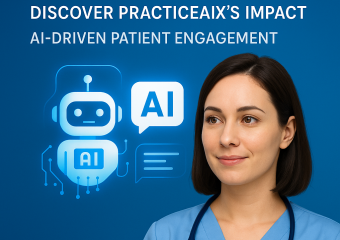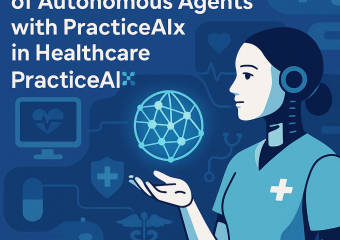AI Meets Wellness: How Preventive Care Clinics Can Thrive in a Digital World
In today’s fast-evolving healthcare landscape, the integration of artificial intelligence (AI) into wellness practices is revolutionizing preventive care clinics. These clinics, which focus on maintaining health and averting disease rather than solely treating illness, stand at the forefront of a digital transformation that promises greater efficiency, personalized care, and improved patient outcomes. As AI continues to advance, preventive care clinics have an unprecedented opportunity to thrive by leveraging the technology to deliver more proactive, data-driven, and accessible healthcare services.
Harnessing AI for Personalized Preventive Care
One of the most significant advantages AI brings to preventive care clinics is the ability to analyze vast amounts of data quickly and accurately. AI algorithms can process patient health records, genetic information, lifestyle factors, and even social determinants of health to create personalized care plans. This level of customization enables clinics to recommend precise interventions tailored to an individual’s unique risk factors.
For instance, machine learning models can predict the likelihood of conditions such as diabetes, cardiovascular disease, or cancer based on a combination of clinical data and patient-reported information. These predictions allow preventive care providers to intervene earlier, recommending lifestyle changes, regular screenings, or treatments that prevent disease progression. The result is a shift from reactive to proactive healthcare—one where health issues are addressed before they become critical.
Enhancing Patient Engagement through Digital Tools
Patient engagement is a cornerstone of successful preventive care, and AI-powered digital tools can significantly enhance this aspect. Mobile health apps, wearable devices, and chatbots equipped with AI can monitor patients’ health metrics in real time and provide timely feedback. These tools encourage patients to take an active role in managing their wellness.
For example, a smartwatch connected to an AI system can detect irregular heart rhythms or sudden changes in physical activity, alerting both the patient and healthcare providers. Chatbots can answer health-related questions, schedule appointments, and offer reminders for medication intake or upcoming screenings. By fostering continuous interaction and education, digital engagement tools help sustain patients’ motivation to follow through with their personalized care plans.
Streamlining Clinic Operations with AI
Beyond patient care, AI has the potential to transform the operational side of preventive care clinics. Administrative tasks such as appointment scheduling, billing, and documentation can be automated using AI-driven software. This automation reduces the workload on staff, minimizes human error, and allows healthcare professionals to dedicate more time to patient interaction.
AI-powered analytics also enable clinics to optimize resource allocation by predicting patient flow, managing inventory, and identifying gaps in service delivery. These insights support better decision-making and improve overall clinic efficiency, ultimately enhancing the patient experience.
Overcoming Challenges in AI Adoption
While AI heralds numerous benefits for preventive care clinics, adopting this technology comes with challenges. Data privacy and security remain paramount concerns, as sensitive health information must be protected against breaches. Clinics need robust cybersecurity measures and compliance with healthcare regulations to maintain patient trust.
Furthermore, integrating AI tools into existing healthcare workflows requires careful planning and staff training. Resistance to change and the need for technological literacy can slow down implementation. Preventive care clinics that invest in educating their teams and fostering a culture open to innovation will be better equipped to harness AI’s full potential.
The Future of Preventive Care is Digital and AI-Driven
The marriage of AI and preventive care signals a significant shift toward a more anticipatory and patient-centric healthcare model. Preventive care clinics that embrace AI technologies will not only improve health outcomes but also position themselves competitively in a digitally dominated market.
As the capabilities of AI continue to grow, we can expect to see more sophisticated diagnostics, real-time health monitoring, and personalized treatment protocols that empower individuals to maintain wellness proactively. Clinics that adapt to this new paradigm will thrive by delivering care that is smarter, faster, and more compassionate—truly fulfilling the promise of technology meeting wellness in a digital world.








